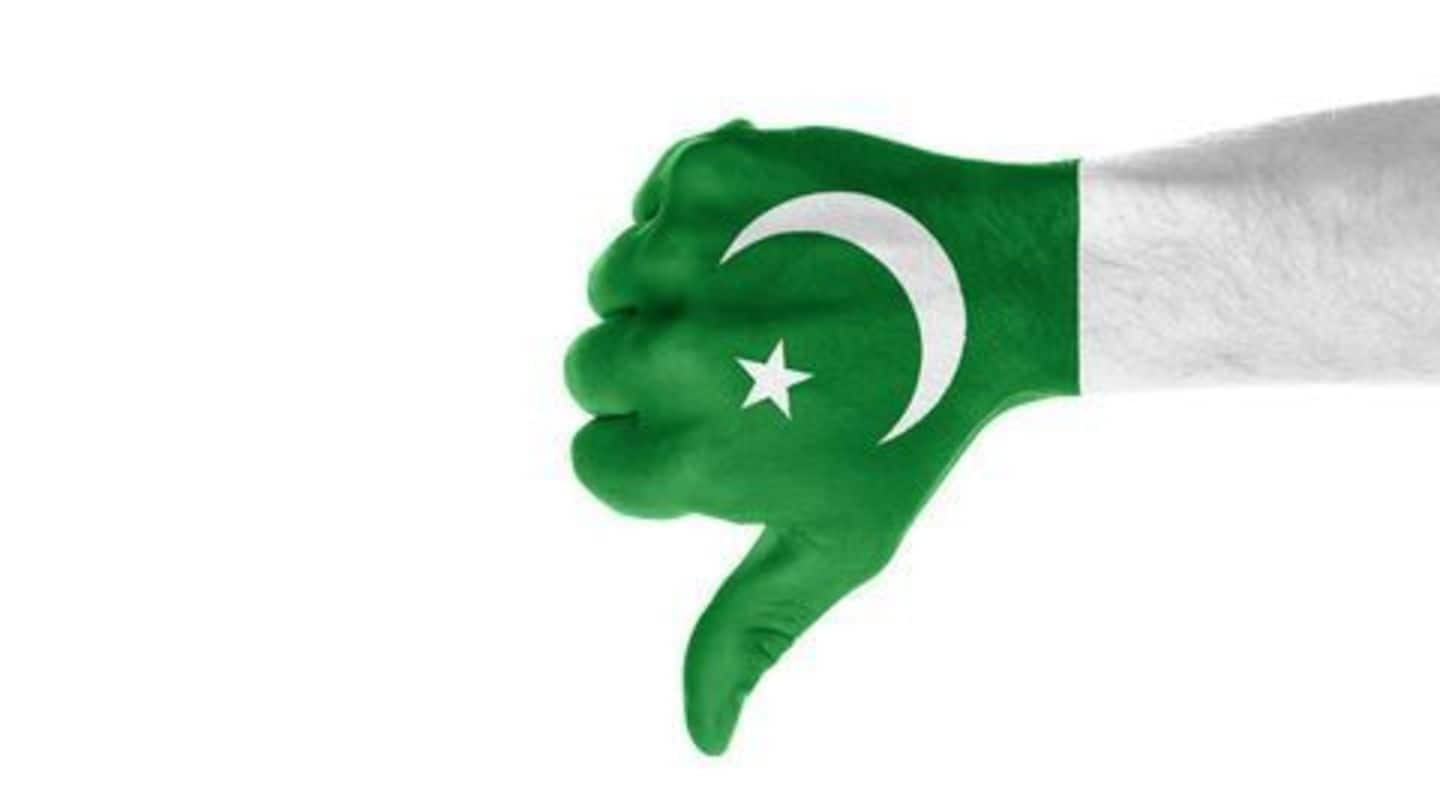
Beheadings of Indian soldiers: Pak destabilizing South Asia
What's the story
The recent beheadings of Indian soldiers by Pakistani armed forces along the LoC have led to a new low-point in bilateral relations.
Indo-Pak bilateral relations have been deteriorating since the Pathankot and Uri attacks, both of which were a consequence of Pakistan's policy of using terror alongside foreign policy.
Do these actions make Pakistan the primary destabilizing force in the region?
Pakistan
Understanding the Pakistani establishment
Pakistan's military is often seen as "state within the state."
While the civilian government carries out its duties, decisions on internal security, foreign affairs and external security are taken by the army and the ISI.
It is for this reason that Pakistan's foreign policy and diplomacy has always been aggressive and reactionary rather than responsive.
PM Sharif's policies have had friction with the Army.
Army
Using terror in foreign policy, the Pakistan army way
Pakistan's Army and ISI have long used terror as a tool of their foreign policy.
This has been seen time and again in Kashmir where anti-India groups like the LeT and JeM enjoy continued patronage of the Pakistani establishment.
However Afghanistan has suffered more in this regard due to Pakistan's continued support to the Haqqani network and the Taliban insurgency in the country.
Data
Why terror?
Terrorism in J&K serves to show the inability of Indian governance to stabilize the disputed region. Continued Indo-Afghan engagement is undesirable for Pakistan. Hence Pakistan uses the Taliban conflict to foster political instability in Afghanistan and force leadership change, to ones who are more pro-Pakistan.
SAARC
How Pakistan counters SAARC integration
Pakistan recently pulled out of the SAARC Satellite project that was aimed at boosting information connectivity between SAARC nations. It also scuttled the SAARC Motor Vehicles Pact which could have vastly improved trade transit among these countries.
This and Pakistan's insistence on bringing China in for all negotiations or as an alternative to Indian leadership make Pakistan a major hindrance to greater SAARC integration.
Information
Pakistan sees SAARC failure as India's failure
By opting out of regional connectivity agreements, Pakistan creates stumbling blocks for Afghanistan's integration with SAARC. Geography mandates that road connectivity for Afghanistan and SAARC has to be facilitated by Pakistan. Analysts speculate that the failure of SAARC would help Pakistan discredit Indian diplomatic initiatives.
Sharif v Army
Sharif vs Army in Pak
In January 2017, the fractures in the relationship between Pakistan's civilian leadership and the army became evident when Nawaz Sharif publicly asked the Army to reign in terrorists or face international isolation.
Now Sharif is facing a Supreme Court investigation into his connections to the Panama papers scandal, with 2 Army representatives on the probe panel.
He faces elections next year.
Information
Sharif's departure would be troublesome for region
A history of military coups in Pakistan make the current Army-govt standoff more precarious. If the government was proven ineffective and the army was to take over, then both India and Afghanistan could face more terror attacks, reducing their focus on internal and regional development.
Looking ahead
Is there a road ahead?
Experts believe that by increasing pressure on groups in PoK and the Pak army, India can put pressure on Nawaz Sharif's government.
Another coup would give India sufficient ammo to condemn Pakistan internationally and isolate it.
However, the repercussions could entail armed conflict in the region which could put immense economic pressure on India, at a time when economic growth is the focus.